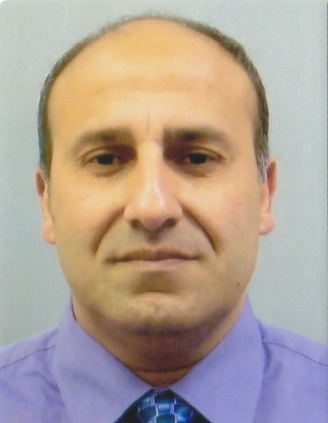Keynote Speaker

Dr. Ismail A Mageed
University of Bradford, United KingdomSpeech Title: Cutting-edge Fractal Geometrization for Next Generations Science
Abstract: Exploring fractals is necessary to find answers to questions like the length of Britain's coastline, the growth of frost crystals, and the number of questions in a problem set. Fractals, which are self-similar patterns found in nature, provide a systematic approach to capturing the complexity and roughness of objects. By applying fractal analysis, we can gain insights into diverse fields such as geography, crystallography, and problem-solving methodologies.
Fractals are patterns that are created through a recursive process and often exhibit self-similarity. Fractals offer a systematic approach to capturing the intricate and rough characteristics of objects, and their applications extend across diverse fields such as programming and medicine. Fractal cities are cities that exhibit a self-similar pattern of growth, resembling a dynamic network that absorbs neighboring towns and villages. This pattern, initially appearing random, may prove to be more efficient than traditional pre-planned cities. Fractal medicine refers to the application of fractal analysis in medical diagnoses, particularly in detecting cancer.
By utilizing fractal image coding (FIC) and other applications, it becomes possible to convey complex patterns with minimal data, making it advantageous for working with image resolution and even creating 3D models. This approach allows for efficient storage and transmission of images while maintaining their visual quality. Fractals, with their self-similar nature, are useful in designing and operating antennas. Specifically, curves like the Hilbert curve can be employed to create antennas that are both high-performing and low-profile. Fractals offer a captivating range of rules for artists to explore in their creations. The Mandelbrot set is renowned for generating visually diverse scenes depending on the chosen colour scheme for its display. Artists can leverage fractal geometry to create intricate and visually appealing artwork with a wide range of patterns and complexity.
Biography: Dr. Ismail A Mageed obtained his doctorate in Applied Probability at The University of Bradford, United Kingdom. Dr Mageed has been nominated by numerous high-profile academic institutions to the world prestigious ABEL PRIZE(NOBLE PRIZE OF MATHEMATICS) FOR THE ACADEMIC YEAR 2024, based on his great services to humanity through revolutionary mathematical applications to advance several scientific disciplines, including Engineering, Computer Science and much more. His current research interests include the unification of queueing theory with information theory and information geometry. His leading research on the relativisation of queuing theory and discovering the geodesic equation of motion for transient queues was greatly received by the world research community, based on spotlighting novel avenues for a UNIFIED THEOREM ON EVERYTHING. Mageed’s research on finding the analytic solutions of the longstanding simulative approach of The Pointwise Stationary Fluid Flow Approximation theory (PSFFA) was an exceptional discovery to advance PSFFA theory. Dr Mageed has published numerous papers in many highly reputable journals and IEEE conferences. He is also a reviewer and a member of the editorial board to many international prominent journals. Mageed’s research has been internationally recognized as being revolutionary by providing several breakthroughs and solving many longstanding open problems. He is currently an active member at the NetPen Research Group, which is the strongest research group in queueing networks in the world. Dr Mageed has published a chapter in a book of the best eight queueing theorists in the world, entitled:
Queueing Theory 2: Advanced Trends
By the world-renowned Publishing Company, ISTE WILLEY, which was translated into French by the same Publishing Company. He has also published another chapter in a high-profile book, entitled:
Fractal Analysis - Applications and Updates
By the world leading open access publishing house, IntechOpen. He is currently coaching numerous volunteering several research teams worldwide to deliver more insights on employing research to serve humanity. He is also a fellow of the Royal Statistical Society (RSS),the OR Society of the United Kingdom, a member of INTISCC (Austria), IEANG (world council of engineering) and a life member of the Islamic Society of Statistical Sciences.
ResearchGate Profile:
https://www.researchgate.net/profile/Ismail-A-Mageed-2
